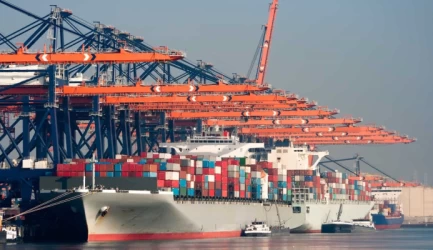Essential Transportation Documents
Transportation documents are crucial for ensuring the smooth and legal movement of goods across borders. These documents serve various purposes, including verifying the contents of shipments, ensuring compliance with international regulations, and facilitating customs clearance. Below are some of the most important transportation documents:
1. Bill of Lading (B/L)
The Bill of Lading is a legal document issued by a carrier to a shipper, detailing the type, quantity, and destination of the goods being transported. It serves as a shipment receipt when the carrier delivers the goods at the predetermined destination. The B/L is essential for the transfer of ownership and is often required for customs clearance.
2. Commercial Invoice
The commercial invoice is a document issued by the seller to the buyer, detailing the goods sold and the amount due. It includes information such as the description of the goods, the quantity, the price, and the terms of sale. This document is crucial for customs authorities to determine the value of the goods for duty and tax purposes.
3. Packing List
A packing list provides detailed information about the contents of each package in a shipment. It includes details such as the weight, dimensions, and contents of each package. This document helps customs officials and the receiving party verify the shipment’s contents and ensure that everything is accounted for.
4. Certificate of Origin
The Certificate of Origin is a document that certifies the country in which the goods were manufactured. It is often required by customs authorities to determine the applicable tariffs and to ensure that the goods comply with trade agreements between countries.
5. Insurance Certificate
An insurance certificate provides proof that the goods being shipped are insured against loss or damage during transit. This document is important for both the seller and the buyer to protect their financial interests in case of unforeseen events.
6. Export License
An export license is a government document that authorizes the export of specific goods to certain destinations. It is required for goods that are subject to export controls, such as military equipment, technology, and certain chemicals.
7. Import License
Similar to the export license, an import license is a government document that authorizes the import of specific goods into a country. It is required for goods that are subject to import controls, such as pharmaceuticals, agricultural products, and certain electronics.
8. Dangerous Goods Declaration
For shipments containing hazardous materials, a Dangerous Goods Declaration is required. This document provides information about the nature of the hazardous materials, including their classification, handling instructions, and emergency response information.
Conclusion
Proper documentation is essential for the efficient and legal transportation of goods. These documents not only facilitate the movement of goods across borders but also ensure compliance with international trade regulations and protect the interests of all parties involved. Understanding and preparing the necessary transportation documents can significantly reduce the risk of delays and complications in the shipping process.
if you have a specific question or need more details, Iran's logistics experts are your answer!











